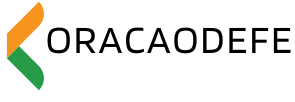
Personal finance refers to the practice of managing one’s money. This encompasses aspects such as budgeting, saving and investing as well as setting financial goals and clearing off debt.
Everybody should aim to save an equivalent of their income. To do this, they should track their spending for several weeks – be it via apps, spreadsheets or pen and paper.
Budgeting
Budgeting is an integral component of personal finance and involves tracking income and expenses while setting financial goals and making informed spending decisions. You can utilize spreadsheets, apps or paper-based systems to manage your budget; whatever method you select it’s important that you set aside time each month to review and adjust as necessary to keep yourself on track toward meeting savings goals and reaching them faster.
Start by totaling up your total income, which should include salary, wages, tips, Social Security payments, investment income and any other sources of cash inflow. Next, total up your monthly expenses: both fixed expenses like rent or mortgage payment as well as variable expenses such as groceries, gifts, dining out and entertainment (estimates can be obtained from past credit card statements or bank statements).
If your expenses exceed your income, either by taking on additional employment or increasing savings by paying off debt and investing in retirement accounts, or both may need to be modified in order to live within your means and avoid financial stress in the future.
Savings
Saving is a way of protecting income for future use rather than spending it immediately, such as placing it into an savings account, pension account or investment fund. Saving typically represents low-risk preservation compared to investments which may involve greater risks.
Savings are an integral component of personal finance, providing an emergency cushion against unexpected expenses or emergencies and helping individuals plan long-term goals without depending on loans or credit. Furthermore, savings can be invested to generate interest or returns which contributes to wealth accumulation.
As part of a savings plan, it’s essential to distinguish between needs and wants. A car and gas are necessities; while a monthly music subscription would fall under wants. By categorizing expenses accordingly, you can control expenses more easily while saving for goals such as home or vacation purchases.
Personal finance knowledge is integral to leading a fulfilling and healthy life. Learning how to budget and repay debt will enable you to live stress-free while attaining financial freedom. There are plenty of free resources online available for this task as well as classes at many colleges and universities where students can gain more insight into investing, saving, and protecting personal finances.
Investing
Investing is the practice of placing money to work to earn additional earnings over time, an integral aspect of personal finance that allows you to achieve your financial goals more quickly than just saving alone and create wealth that doesn’t rely on employment or the amount you make.
One effective approach to investing is tracking your spending and setting financial objectives, with the aim of avoiding common pitfalls such as overspending and debt accumulation. Setting both short- and long-term financial goals can encourage you to stick to your budget and save regularly.
Personal finance encompasses everything from budgeting and debt management to investing and protection using insurance policies. If you have multiple financial goals to reach, professional advice may be useful; an advisor can create an all-encompassing financial plan and identify potential investment opportunities.
Financial industries are flourishing, and there are various services to help manage your finances. When selecting a service provider, make sure they have an excellent track record and customer service department as well as various investment options like mutual funds to meet all your needs.
Protection
Personal finance encompasses a set of practices and tips for effectively managing one’s finances. It emphasizes the need to build savings to cover emergencies, purchase insurance against debt and illness costs, plan retirement or estate strategies accordingly and stay vigilant against identity theft scams and other threats to personal financial well-being. Protective measures play a key role in personal finance by helping prepare you for what may come unexpectedly without jeopardizing other goals you have set for yourself.




